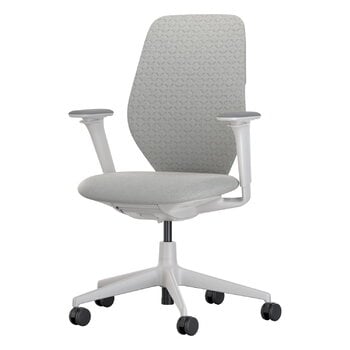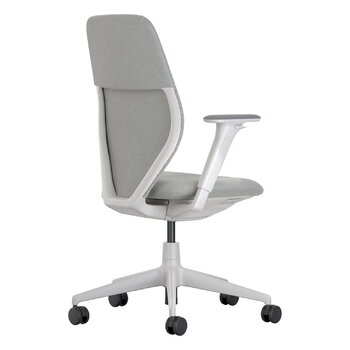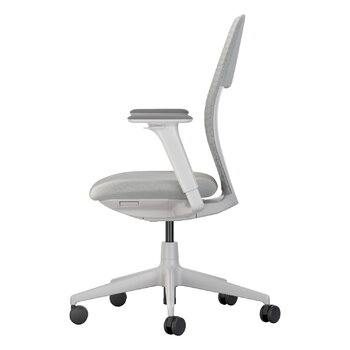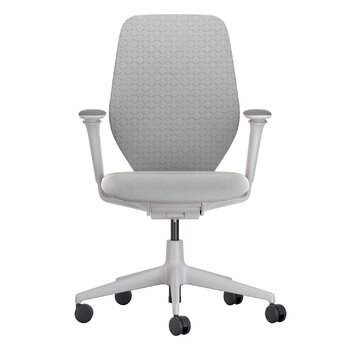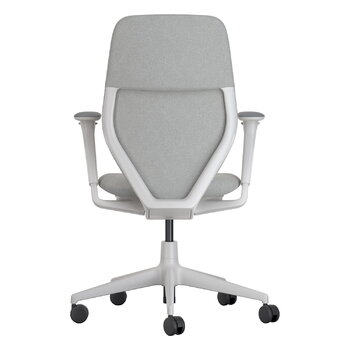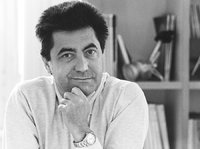The Vitra ACX Soft task chair is particularly suitable for dynamic spaces like hybrid offices and conference rooms, where multiple people might use the same chair in the course of the day. Thanks to the automatic mechanism, ACX series office chairs are as comfortable as possible with as little adjustment as possible, regardless of the weight of the individual sitting in the chair. The height and seat depth of the chair can of course be customized to optimize the sitting position. The extra padded ACX Soft model also has height-adjustable armrests.
The ACX office chair is already the tenth office chair that Vitra has developed together with Antonio Citterio. The designer focused on sustainability and a long service life with as small a carbon footprint as possible, but also on the chair's appearance – task chairs are usually not the most aesthetically pleasing items in the office. However, the simple lines and inviting design language of the ACX office chair make the chair a stylish seat option for any stylish office.
